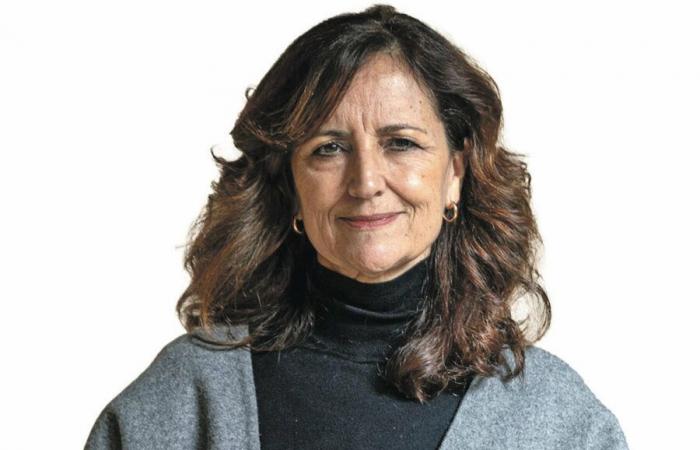Luís Marques Mendes praised the choice of Dalila Rodrigues as Minister of Culture in Luís Montenegro’s government, adding that it had been 43 years since a social democratic government had a ministry. It is not necessary, however, to go back too far in time to find out who the last Minister of Culture was in a government led by the PSD.
Luís Marques Mendes took advantage of his usual Sunday commentary space, on SIC Notícias, to praise Luís Montenegro’s choices for the government which takes office this Tuesday, April 2nd, from 6pm. The commentator analyzed the new ministers to highlight that the next government surprised almost everyone, particularly due to the names it invited and the quality they bring.
Among the PSD leader’s choices is Dalila Rodrigues, the next Minister of Culture, something that Marques Mendes said has not happened – a social-democratic government having a Ministry of Culture – since 1981, when Francisco Lucas Pires was Minister of Culture and Scientific Coordination of the VIII Constitutional Government, headed by Francisco Pinto Balsemão.
“Dalila Rodrigues is the sixth big surprise that I point out here. On the one hand, she has done and recognized work in the field of Culture, starting at the Grão Vasco Museum, in Viseu, at the National Museum of Ancient Art, here in Jerónimos… she is, in fact, a person in the sector. She is a person, at the same time, with a strong personality, very strong, very defined and very striking. It is important to always keep this in mind”, praised Marques Mendes. “And there will be an interesting challenge here: it is the first time, in 40 years, that there is a Minister of Culture in a Democratic Alliance government. Generally speaking, they were secretaries of State. The last one was, precisely, in 1981, do you know who? Francisco Lucas Pires. This is also a big challenge for this minister, who now has the status of minister and not secretary of state,” he added.
While it is true that governments led by the PSD do not usually have Culture as a Ministry, the truth is that the second government of Pedro Passos Coelho, in 2015, had Teresa Morais as Minister of Culture, Equality and Citizenship, – and it was for 27 days and four hours. In the first term, Jorge Barreto Xavier was Secretary of State for Culture, reporting directly to the Prime Minister.
The elevation from Secretary of State to Ministry was a sign of openness, at the time, of Passos Coelho to the PS – the measure was included in the socialist electoral program, but was not in the commitments of the Portugal à Frente coalition – and one of several proposals that were put forward on the table during negotiations. Having failed to reach an agreement, the PSD-CDS government took it over as its own and returned the Ministry of Education.
Contacted by NEWMarques Mendes acknowledged that it was “an oversight”, which he will correct next Sunday, when he returns to the SIC Notícias studios for his commentary space.
“I wanted to say that the first Minister of Culture of an AD government was Francisco Lucas Pires, 40 years ago”, he explained to NEW. “There is, therefore, a special responsibility for this government. It was an oversight, which I will correct on Sunday,” she added.
The history of the Ministry of Culture
Before the First Constitutional Government took office, the implementation of cultural policy was generally the responsibility of the Ministry of Education. In 1976, the State Secretariat for Culture was created, directly dependent on the Presidency of the Council of Ministers. From then until 1981, supervision alternated with the Ministry of Education.
Francisco Lucas Pires was, in fact, Minister of Culture and Scientific Coordination in the second government of Francisco Pinto Balsemão, until 1983. In the first, which lasted less than eight months, Culture was dependent on the Prime Minister, with António Braz Teixeira as Secretary of State responsible for the portfolio.
Mário Soares maintained Culture as a Ministry in the Central Bloc government that followed, after Ramalho Eanes decided to dissolve the Assembly of the Republic in January of that year, with António Coimbra Martins at the head of the department.
In 1985, Cavaco Silva relegated Culture to the State secretariat in his first government, with a relative majority, under the tutelage of João de Deus Pinheiro as Minister of Education and Culture. In the second and third governments, she was part of the Presidency of the Council of Ministers, with Pedro Santana Lopes as Secretary of State, between 1987 and 1991, and Manuel Frexes as Under-Secretary of State, between 1991 and 1995.
That year, António Guterres recovered the Ministry of Culture, with Manuel Maria Carrilho in charge, between 1995 and 1999, having also transitioned to the second government, where he remained until July 2000. He was followed by José Sasportes (2000-2001) and Augusto Santos Silva (2001-2002).
Durão Barroso and Santana Lopes also had their Ministers of Culture, in the government in which the second replaced the first at the head of the government: Pedro Roseta, from 2002 to 2004, and Maria João Bustoff, between 2004 and 2005. Luís Marques Mendes was minister of Parliamentary Affairs.
In the first government of José Sócrates, Ministers of Culture were Isabel Pires de Lima (2005-2008) and José António Pinto Ribeiro (2008-2009). In the second term, the portfolio was held by Gabriela Canavilhas (2009-2011).
Graça Fonseca was Minister of Culture during the first two governments of António Costa (2015-2022), succeeding him in the position Pedro Adão e Silva (2022-2024).






